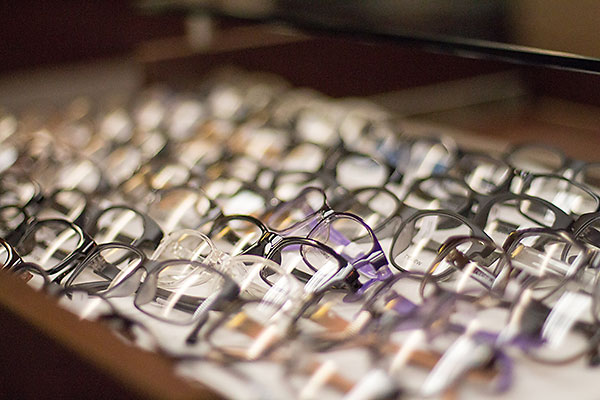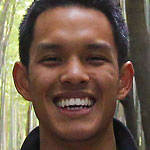
Every time he stood in front of a mirror and saw a scrawny Asian kid staring back at him, he felt shame.
Paralyzed, I watched in the distance as my twin brother was grabbed by the throat and hoisted into the air. As his feet dangled above the ground and his body was pinned against a tree, I stood still. My young, fifth grade reflexes were locked up, somehow frozen despite the beating heat of the midafternoon sun. An eternity seemed to pass in those next few seconds. Thoughts began to flood my mind: Is that really my brother? Why is this happening? Is it because we’re Chinese? Are my parents finally here in the carpool line and can they do something to get us out of here?
I was too far to reach him in time and overwhelmed by what I was seeing. Standing motionless, trying to will myself out of my shock and disbelief, I watched as a classmate intervened. Dropping his shoulder, he rammed into the body of the bully choking my brother. While I was still processing how this was even happening, our classmate had somehow found the strength to step in.
Growing up as a Chinese American in Texas was filled tension and hope. Early on, I learned to navigate between the different cultures I lived among out of social necessity, as I attempted to negotiate my identity. I knew I was different, but that didn’t keep me from trying to integrate with my peers. My ethnic Chinese church served as a type of home for me. It was the one sanctuary where I felt like I belonged, without the feeling of difference trailing as my shadow. On Sunday, everybody implicitly understood me and shared my confusion. But from Monday to Saturday, I had to live in a world where I was the minority. And all I wanted was to fit in.
At school, I tried to distance myself from my ethnicity. In my own developing mind, I thought that perhaps this would help with mitigating the exclusion my brother and I sensed. There were subtle ways this feeling of not belonging was reinforced: being among the last picked for a playground game of football; experiencing the “saved seat” phenomenon in the cafeteria; receiving two or three pity cards when our class celebrated holidays like Easter or Halloween — one of which came from the teacher. When the choking incident happened, I saw it as another reminder that we didn’t belong. We were alone, overlooked, and isolated for our differences. And it seemed clear that we were not really welcomed.
Throughout the rest of my grade school years, I developed a strong desire to be accepted. Unfortunately, my parents didn’t help with this endeavor. They sent us to school with matching Mickey Mouse sweaters and sweatpants — red, loud, cringeworthy, and definitely not from the Disney store. These were the knockoffs you could get from Hong Kong from a generous aunt or thoughtful uncle. Every time we walked to school, it was like we were wearing a flashing sign that announced, “We don’t belong here.”
Despite feeling like I was second-class, I worked to minimize my differences with my peers. I was convinced if I associated with the right people, I would be accepted. I avoided other friendships that I interpreted as not socially advantageous. Although there were only a few Asians at my school, they were mostly recent immigrants, so I chose friends who looked less like me. I tried to distinguish myself as being unlike the Asian stereotypes and more like the popular crowd. I begged my mom to buy me the kinds of clothes my peers wore. I tried out for the basketball team, and when I didn’t make the cut after my first year, I joined track and field and later cross country. I made friends with those whom I saw as the insiders of the majority culture.
Yearning to be known is a human desire. God grafted that into our human experience. But for me, the desire to be accepted was laced with something that was both subtle and sabotaging. Every time I looked through my glasses into the mirror, I saw a scrawny Asian kid staring back at me. And I felt shame. This was me — crooked glasses and all.
One day my optometrist noticed my crooked glasses hadn’t been adjusted for the differing heights of my ears. He fixed my glasses in less than a minute. I put them back on and looked in the mirror. Now, a scrawny Asian kid with straight glasses was staring back at me. Some improvement, I guess. Later, the miracle of contacts arrived, along with the less-than-miraculous saline solution bottles and contact cases. I was stoked to replace my gold-rimmed eyewear, but even then, I knew this latest change would only touch on the surface of things. I still yearned for something more, and even in middle school, I slowly began to sense an invitation to go deeper. Will you see Me the way I see you?

This invitation from God wasn’t explicit or necessarily observable to me at first. By now, I had learned to live with my skin and my shame. I had a kind of begrudging acceptance, one in which I acknowledged my ethnicity as a kind of unalterable social handicap. Even though I couldn’t change who I was, I couldn’t learn to like it either. The thought had never occurred to me that being Chinese American could actually be good. But God’s invitation persisted, and I found myself wondering: could there be anything worthy about being Chinese American?
At some point while I was in college, God reminded me of Mark 8 and the story of the blind man’s healing. Jesus desired to meet the blind man’s need. He didn’t just restore the man’s sight; He helped him to recover his sense of identity and purpose. Reflecting and praying through this Scripture, I sensed that God also desired to meet me and restore my identity. I had no grand illusions that this would include a correction to my nearsightedness, but I certainly wouldn’t mind if it did.
The idea of God meeting my need was intriguing, but my shame still weighed heavily on me. For years, my internal narrative of not being good enough had been etched onto my heart. But eventually, I grew weary of running from myself. I still couldn’t make sense of everything, but I knew trying to separate myself from this identity was no longer an option. This was me — contacts and all.
It would take another experience of racism to jolt me out of my complacency. This came in college, when late one night, a friend of a friend labeled me as “one of the foreigners who’s stealing our future jobs”. Then and there, something inside me snapped. I felt myself wanting to lash out and go beyond just calling him out for his ignorance and arrogance, but I knew that wouldn’t end well for any of us. So angry, ashamed, and frustrated, I said something under my breath and walked away, reminded that there would always be those who view me as less than. This recognition doesn’t excuse his racism, not in the least. Instead, it defines the liminal world we live in, a world in which the kingdom of God is already here, and at the same time has not yet arrived. This is the world in which we strive and hope for the things unseen.
That same night, I started to work out those feelings that unearthed things in my life I sought to cover up — shame, unworthiness, and yearning. I didn’t call a friend to grab coffee and commiserate. Instead, I hit the basketball courts to let out some steam. Afterwards, I found myself venting my thoughts through prayer and journaling. This began a process for me to know myself through God’s eyes.
As I look back on that catalyzing experience, I am grateful that God did not abandon me in my rawness. Instead, He listened to my frustrations. He saw my continuing journey of shame. He knew how I had unconsciously divorced my identity from my faith, and how this had effectively led me to settling for a toy Jesus, whose “I love you” was too small and naïve to address the deeper longings of my soul. Ultimately, He understood my desire to be accepted. Will you see Me the way I see you?
God’s invitation finally registered in my life, and I responded.
God was now breaking in. This Jesus, not my small version of Him, was reawakening my desire and reforming my identity. As Os Guinness wrote in “The Call”, Jesus was showing me that He “calls us to Himself so decisively that everything we are, everything we do, and everything we have is invested with a special devotion and dynamism lived out as a response to His summons and service”. I felt God saying that nothing about the way I was made was considered unworthy in His eyes. Could this actually be true?
As God was uncovering the shame and the history that surrounded my sense of being, He didn’t leave me there. He began redeeming my shame, turning it into something else, something valuable. This didn’t change the fact that I would likely continue to face racism and the temptation to live in shame. But my identity was being reclaimed. As I started to understand from deep within that I was created in God’s image and fully accepted in Christ, I saw my insignificance diminishing. In the place where only weakness and shame once occupied my Chinese American identity, strength was emerging, calling me to celebrate who I am. God has a way of not wasting any part of our lives. In His economy, even the most mundane, hurtful, or confusing experiences can be redeemed.
Through Scripture and through friends, God has beckoned me to move into a world still broken, now being redeemed. These past six years, I have been blessed to have friends and ministry partners who see the best in me. Without always knowing it, they have encouraged me and called me out of my past shame, inviting me to contribute the gifts my background and ethnicity can offer. Making the redeeming work of God tangible is the community of Christ at its best.
As God continues to meet my longing to be seen, I have discovered the freedom and joy of living in my own skin. While still aware that my ethnicity distinguishes me, I have come to embrace the part of me that is Chinese American not as a source of shame, but as a God-given gift. This embrace has helped me to look back and smile with appreciation on the well-intentioned abrasiveness of my Chinese family and friends. Though I don’t often eat dim sum, memories of the loud Cantonese table and the lazy Susan rotating our food has now taken on life-giving meaning to me. And when I see my friends’ shock as they are served a steamed fish with its head intact, I laugh and tell them to eat the eyes — they’re good for your eyesight.
Realizing that our differences can enrich the fabric of our communities is a redemptive process. Beyond the culture and the food, I have learned to value the communal aspect of my Chinese heritage. My parents were always welcoming others and taught me to embody grace and that kind of acceptance as well. I have come to appreciate how my understanding of hierarchy has challenged me to respect many different kinds of people — even outside of the hierarchical structure. My Asian American identity has helped me to become a bridge builder between different communities, helping to create new communities that can experience grace together. I’ve seen how my ethnic story has blessed international students studying in the States. I’ve also noticed how the internal struggle surrounding my identity now enables me to listen, understand, and be an advocate for others.
There are days when my ethnicity can still feel like a weakness. But when those kinds of thoughts surface, I also hear something else. I hear the voice of Jesus inviting me to see my entire being from God’s eyes — delightful, worthy, and blessed for the sake of others. This slowly changed me. I am now much more aware of God’s pleasure in me through Christ. Seeing myself through God’s eyes has given me strength — not just to exchange my shame with God’s pleasure over me, but to also walk confidently in Christ as he teaches me to see myself and others as God sees us. This has freed me to stand with the marginalized, to advocate and speak out for the recovery of their being “on earth, as it is in heaven”.
This is me, in Christ — beloved, Chinese American and all.
“Once more Jesus put his hands on the man’s eyes. Then his eyes were opened, his sight was restored, and he saw everything clearly” (Mark 8:25 NIV).

Jonathan Eng serves as a pastor with Gateway Church in Austin, Texas and loves inviting others to pursue God’s heart for reconciliation and justice. When he and his wife Gloria aren’t chasing around their little one, they enjoy traveling, diving, and chasing their dogs, Squishy and Mocha. Stay connected at jonathankeng.com.
